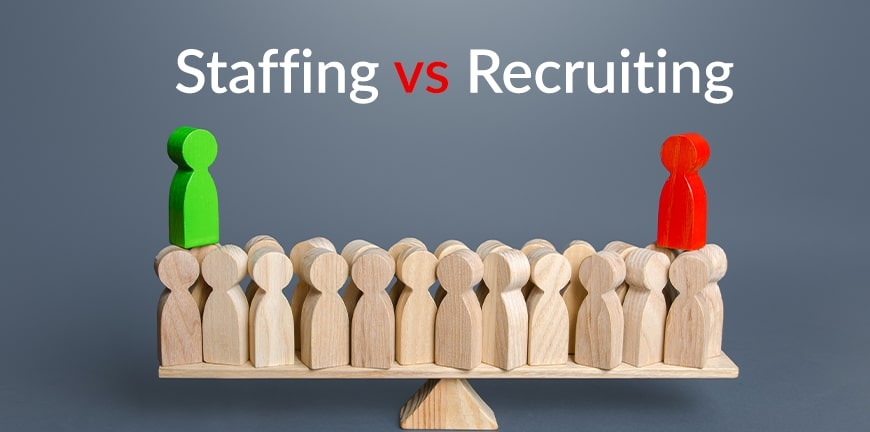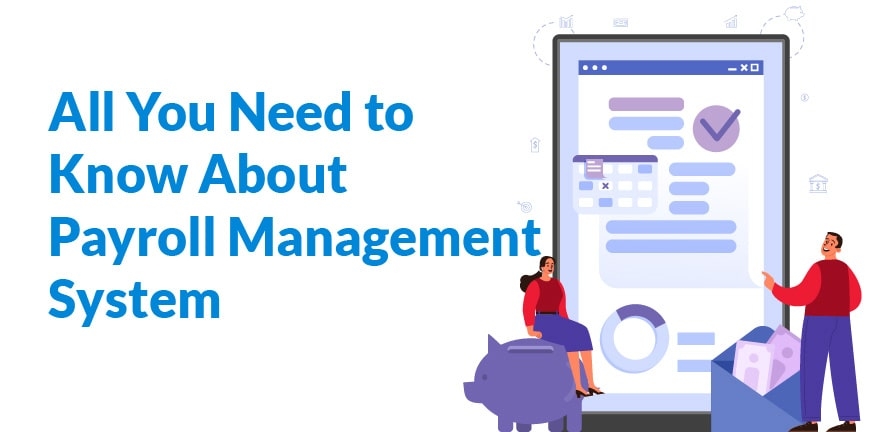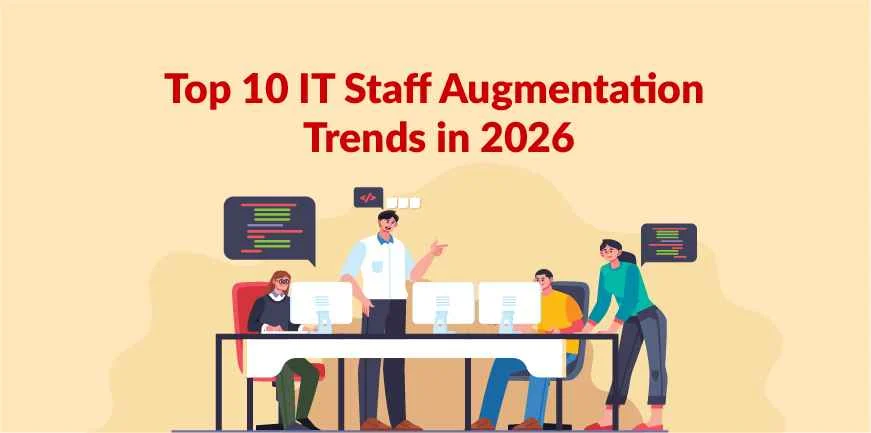
The Rise of Skills-Based Hiring: What It Means for HR Professionals and Talent Acquisition?
20/08/2025
What is Talent Management? Guide for HR Leaders in 2026
25/08/2025- What is the Meaning and Definition of Staffing in Management?
- Why is Staffing Important and what are its Main Objectives?
- What are the Examples of Staffing?
- What are the key benefits of staffing for organizations?
- What are the Main Features of Effective Staffing?
- What are the Main Steps Involved in the Staffing Process?
- What types of staffing methods are used in organizations?
- What Factors Can Affect the Staffing Process?
- What are the Most Common Staffing Challenges Companies Face?
- What are the Best Practices for Successful Staffing Management?
- What are the main functions of staffing in management?
- Key Takeaways
- Frequently Asked Questions (FAQs)
Staffing is the process of finding individuals with the right qualifications, experience, or skills and recruiting them to fill relevant open positions in an organization. However, quite often, companies may require workers on a temporary, contract, or permanent basis depending on their operational or seasonal needs. This criterion is satisfied by the staffing model, as it facilitates hiring of individuals for a short or long period of time. In this staffing guide, we’ll be exploring the types of staffing, its importance, benefits, features, examples, and much more.
What is the Meaning and Definition of Staffing in Management?
In management, staffing refers to the recruitment of individuals based on their knowledge, skills, qualifications, and experience to fill relevant open roles in an organization and ensure that they help meet the organizational goals. It is one of the key managerial functions that involves many activities like recruitment, selection, training, development, compensation, and retention of individuals.
Why is Staffing Important and what are its Main Objectives?
Staffing is important because it ensures that organizations are equipped with teams with the right skills and experience, and are proactive in working towards the goals and needs of an organization. The staffing model helps employers have a workforce that is productive and engaged, resulting in enhanced business performance.
1. Hiring the most relevant candidate for the job
The staffing model identifies individuals with the exact skills and experience that are required for the job, ensuring better performance, higher organizational productivity, and fewer inefficiencies.
2. Supports organizational goals
Staffing is a concept that supports organizations in bringing alignment between human resources to strategic goals, ensuring growth and success. Staffing facilitates the matching of individuals with specific skills with the right jobs, leading to better productivity.
3. Better decision-making
Staffing helps organizations in creating a workforce that not just aligns with their organization’s goals but is also competitive, engaged, and productive, leading to better decision-making of the organization.
4. Decreases recruitment costs
Staffing reduces the need for recruiting employees permanently but ensures job satisfaction among employees through mindful staffing practices. And employees are happy working, they tend to remain more engaged and committed to the organization, reducing the turnover rates.
The main objective of staffing includes-
- Talent acquisition- One of the key objectives of the staffing process is to hire the best talent for the role. By engaging with the staffing model, organizations can map out the type of employees required for the job, enhancing talent acquisition.
- Recruitment and Selection- Staffing facilitates the recruitment and selection process, ensuring continuity of operations in an organization. The process ensures that individuals hired through staffing contribute positively to the organization’s goals. Recruitment is done either through internal or external sources, and selection involves an interview test and assessment to select the right candidate.
- Competitive advantage- Recruiting qualified and skilled candidates gives organizations a competitive advantage in the market. Recruitment, training, and development of individuals result in higher productivity.
- Training and Development- This is an essential part before hiring, as it facilitates the growth and enhancement of skills of individuals, leading to higher productivity.
- Higher job satisfaction- the staffing process is one that involves proper matching of individuals with jobs, ensuring their skills are relevant to job requirements.
What are the Examples of Staffing?
1. Temp-to-hire staffing
Also known as contract-to-hire staffing, organizations engage candidates for a small period of time to occupy a position only for a brief period. For example, in colleges, professors are hired on a contract basis as assistant professors to teach a class. Based on their performance, the contract can be extended.
2. Direct Hire Staffing
In Direct Hire, organizations hire full-time employees with skills that match their company’s values and mission. For example, MNCs hire candidates who are the right fit with relevant qualifications during campus placements.
3. Payroll Services Hiring
Payroll services of the candidates hired through the staffing model are outsourced to an expert third-party payroll services provider. But the responsibility of shortlisting and selecting the candidate lies with the company itself. This allows employees to focus on their core tasks and be much more productive. For example, construction companies hire workers temporarily on a payroll basis to work on construction sites.
4. Strategic Staffing
A combination of several types of staffing is used to help businesses address their needs. Training and upskilling programs can help keep them updated. For example, managing a talent pipeline to ensure the smooth succession of candidates to fill in crucial roles in an organization.
5. Short-term staffing
This type of staffing makes sure that immediate workforce needs are attended to by deploying short-term workers. For example, in factories, during specific projects, seasonal workers are hired.
6. Long-term staffing
When companies are looking to hire individuals on a more permanent basis, and create a stable workforce for constant productivity in an organization. For example, Institutions like Government offices and banks hire staff who are looking to work long-term.
What are the key benefits of staffing for organizations?
Staffing has several benefits, but there are 4 main advantages of staffing. They are:
1. Jobs for the right people
Getting the right people for the listed jobs and in the right time and for the right time is a requirement not every organization can fulfil with an in-house HR team. This is why they need to talk to an HR consulting company like Alp Consulting, which can help meet their requirements.
2. Increased productivity
When the staffing provider makes the right decisions and is resourceful enough, then the productivity of the team goes up and consequently, this impacts the growth of the company in a positive way. And positive growth of a company means higher customer satisfaction.
3. Improved staff member satisfaction
When the staffing provider makes all the right choices, the employees hired will be a great cultural fit, too, and this will, in turn, lead to greater satisfaction and engagement for each staff member.
4. Organizational harmony
When there are processes in place for analysing the performance of hires, understanding how they can improve and how they can be rewarded, it brings about an understanding between hires and the management, and in turn leads to organizational harmony.
5. Reduced Costs
Staffing sure is an upfront investment, but it is a cost-effective solution overall. How? Companies can avoid spending their resources on recruitment activities as well as eliminate making bad hires by accessing the hiring expertise of a staffing provider.
What are the Main Features of Effective Staffing?
A staffing process can be made effective with proper planning and strategy. This, in turn, ensures that the right people are selected for the right job roles. Some of the main steps of staffing include:
1. Workforce Planning
The first and foremost step is manpower planning, which involves assessment of an organization’s existing workforce and analyzing it for potential shortages or skill gaps. The process also involves identifying and understanding future requirements.
The current workforce and future requirements should be well evaluated and comprehended, ensuring that appropriate employees are recruited for suitable roles at the right time.
2. Recruitment Process
A recruitment process is a critical step where the staffing provider identifies and attracts skilled candidates to fill potential job roles in organizations.
This phase is about getting clarity on what the job role needs, which includes experience, talent, and cultural fit. Post this, compelling job descriptions are designed based on the vacant roles to attract eligible candidates. An array of channels is used to tap into potential candidates.
3. Selection Process
After posting job ads on social media and other channels, a structured approach must be crafted. The process kicks off with the screening and reviewing of applications.
Resumes are assessed thoroughly, ensuring the best candidates meet the required qualifications and align with the job requirements. Organizations use HR technology like applicant tracking systems (ATS) and others to filter applications efficiently.
4. Onboarding Process
After selecting suitable candidates through the various assessments, onboarding begins. This process is initiated after a candidate accepts the job offer.
The staffing provider ensures a smooth transition of new hires into the organization by providing them with substantial knowledge, tools, and support to be successful in their roles and connect to the company and its objectives.
5. Training and Development
It isn’t enough to just hire a candidate with the right skills and qualifications. Training them to integrate seamlessly into their job role is equally essential because it ensures optimum performance in their job roles.
Appropriate training programs and sessions are developed to help a new joiner understand the organizational goal and support them with the necessary skills to contribute to the growth of the organization while also enhancing their personal growth.
6. Performance Management:
Performance management in staffing is a continuous process involving the evaluation and review of employee performance to ensure enhanced employee performance and effectiveness by implementing strategic methods, driving individuals’ contributions to align with the objectives of an organization.
Organizations must focus on annual performance reviews, but it should also be an ongoing process with constant feedback, goal setting and planning, crafting a clear structure to track progress and accelerate results.
7. Retention Planning
Retaining top talent has become more important than ever, owing to the challenging market conditions. To ensure the same, a positive and supportive work environment where employees feel valued is especially important. This not only boosts their confidence but also increases their loyalty towards the organization. Companies can incorporate strategies like increasing compensation, benefits, or offering other perks to improve retention rates.
What are the Main Steps Involved in the Staffing Process?
The staffing process has 8 key steps, and each of them is crucial to building a high-performing workforce.
1. Manpower Planning
In this step, the staffing provider identifies the number and type of employees required to meet workforce requirements and business goals. By assessing the current workforce and mapping out future needs and determining the skills required for the open positions, a search strategy is crafted.
2. Recruitment
Attracting potential candidates is the next step. This is done by advertising on job boards, social media, and various other channels to reach out to various applicants.
3. Orientation and Placement
Employees who are selected go through the onboarding process during which they are made aware of their job role and responsibilities and are provided with the resources they need to settle into their jobs.
4. Training and Development
To help employees integrate well into their job roles, learning opportunities like seminars, webinars, or other one-on-one sessions are provided. This is also in keeping with themselves updated with the current and future roles.
5. Remuneration
Based on how well the employees perform, they are compensated. The compensation also depends on the complexity of the role, responsibilities, and performance.
6. Performance evaluation
Once the employees are integrated into the company, they go through a probationary period or so-called settling-in period where the employer sees if they have fit into the role well and can handle work as expected.
7. Appraisal
Upon completing one year, the employees are assessed based on how they perform in their roles throughout the year and are offered appraisals based on it. They are also provided with feedback to make improvements in certain areas.
8. Promotion and Transfer
A few employees who perform consistently well are encouraged to learn and take on more responsibilities and are promoted to higher levels or are transferred to other departments or locations where their expertise is required.
What types of staffing methods are used in organizations?
There are several types of staffing methods an expert staffing provider offers, depending on the workforce needs of an organization.
1. Temporary Staffing
This type of staffing is preferred by companies looking to hire staff during emergencies for a short duration. This mode of hiring talent offers perks like flexibility, cost-effectiveness, high ROI, etc. This is ideal when project deadlines are fast approaching but the workforce is not sufficient, or during short-term project execution, where specialised expertise is needed.
2. Contract Staffing
This is ideal when companies are looking to hire workers with specialised skills for a fixed duration. Contract staffing helps industries and establishments gain instant access to skilled professionals without having to offer them long-term commitment.
3. Permanent Staffing
It involves hiring professionals & entry-level employees on a long-term basis, usually for a permanent role with a predefined notice period. In this type of staffing, companies must provide benefits like insurance coverage, retirement plans, and career growth opportunities.
4. Project-Based Staffing
Employees are hired temporarily to carry out tasks in a particular project. The workforce hired under this model will be paid upon completion of the project. The project-based staffing is frequently used in software development, marketing, construction, etc.
5. Staff Augmentation
It is a flexible staffing model that allows companies to hire experts with specialised skills to carry out a specific project for a fixed duration. Staff Augmentation is an ideal staffing method that helps in scaling a team without the promise of long-term commitment. These types of staffing models are ideal for hiring talented professionals to carry out IT projects.
6. Virtual Staffing
Virtual staffing enables companies to hire employees from any corner of the world. Here, the employees will be hired either temporarily or permanently to work in a remote setup.
This approach allows employers to gain access to services of a wide talent pool across the globe, helping them fill positions of niche roles and positions that require specialised expertise and knowledge.
7. Direct Hire staffing
In the direct-hire staffing model, the employer directly hires the candidates to fill a vacancy but asks staffing agencies to run the hiring process and negotiate the negotiations to finalise job offer with terms and conditions.
8. Freelance Staffing
It involves hiring professionals to carry out critical or non-critical tasks on a project-to-project basis. These types of workforce solutions help companies gain instant access to experts with specialised skills at much lower costs compared to permanent staffing.
What Factors Can Affect the Staffing Process?
Some of the key factors influencing staffing are internal factors like company policies, budget, and culture, and external factors like labour market conditions, competition, and government regulations.
Internal Factors
These factors are caused from inside the organisation and can be managed or changed by the company.
1. Organization Structure
Hiring is dependent on the organisational structure, meaning, more layers of management require more managers, whereas fewer layers require fewer managers. Organizations with a strict structure make significant use of defined roles, whereas flexible structures encourage diverse skills and cross-functional hiring.
2. Financial budget
Hiring is entirely dependent on the financial abilities of the organization. Organizations with fewer financial resources can only limit the process of hiring and may even have to compromise on the quality of candidates.
3. Organizational culture
Company culture plays a key role when it comes to staffing because when staffing fits the culture, employees adapt better and therefore perform efficiently, thus the retention rate is higher.
External factors
External factors are those that cannot be controlled by the organization or management. These factors have a high influence on staffing strategies.
1. Labour market conditions
When organizations operate in competitive markets, attracting top talent is challenging, and this makes staffing the right employees difficult.
2. Government Laws
Changes in the policies require organizations to change the staffing process to suit the new policies.
3. Competition
The intensity of competition in an industry determines the staffing approach. Organizations operating in competitive industries have to pay more, offer better benefits, and provide opportunities for growth to attract talent.
What are the Most Common Staffing Challenges Companies Face?
Some of the common challenges companies face while fulfilling their staffing requirements are-
1. Fluctuating workloads
Industries having constantly changing staffing needs find it challenging to scale their workforce quickly to adapt to this, making it a stressful scenario for them.
2. Talent Shortages and Skills Gaps
Finding candidates with the exact skills they need for the job role can become quite challenging for companies, especially for roles that are rapidly evolving.
3. High turnover rates
Making sure your best talent stays with you is not so easy, especially when there is less engagement, insufficient compensation, or very less growth opportunities. This increases recruitment costs and disrupts the stability of the organization.
4. Employee engagement and retention
Keeping employees engaged, active, and motivated is an extremely challenging task for organizations. Failing to do so affects the productivity and overall morale of employees.
5. Managing a multigenerational workforce
Maintaining and managing the expectations of workforces from different generations, including Gen Z, Millennials, and boomers, has become quite challenging. Making sure there is enough communication and engagement is necessary.
4. Wage inflation
Making sure employees are being paid competitively, along with the right benefits and perks, is challenging due to the rise in wage expectations.
5. Recruitment Process
Sourcing, screening, and hiring candidates is tedious and complex due to the increase in demand for top talent and changing expectations.
6. Organizational change and adaptability
Change in technology, strategies, and market shifts makes it difficult for employees to adapt. This creates chaos and stress if not managed well.
What are the Best Practices for Successful Staffing Management?
Staffing can be successful only by implementing the best practices, which means remaining effective, adaptable, and compliant with evolving HR trends.
1. Create a talent pipeline
It’s essential to maintain a talent pipeline that has candidates who are engaged. These kinds of candidates can be tapped into by networking, internships, and talent communities.
2. Structured interviews and evaluations
By crafting structured interviews and evaluations, organizations can reduce unconscious interviewer bias across various departments, leading to better decision-making.
3. Focus on diversity and inclusion
Having diverse hiring practices must be a priority in all organizations. To do so, they may make use of blind screening, inclusive job descriptions, and accessible platforms to reach a wider pool of talent.
4. Maintain statutory compliance
Compliance with all relevant labour laws, including adherence to paying minimum wages, provident fund and gratuity, equal opportunity, and non-discrimination, as well as documentation and record keeping.
5. Conduction of regular staffing audits
To ensure the staffing practices are producing the best results, it’s essential to perform internal audits to identify bottlenecks, unfair practices, inefficiencies, and areas for automation or training.
What are the main functions of staffing in management?
1. Recruitment
In the recruitment phase, the staffing solutions provider encourages applications from candidates based on the needs sent by the organization. The staffing provider will post the requirements on multiple channels like job boards, social media, etc, as well as contact their pre-existing network of talent.
2. Selection
The staffing provider selects candidates through several rounds of screening. The rounds of screening will test for professional skills, quantitative, language, and analytical skills, and people and management skills, either through a written test or using an audio or video interview.
3. Orientation and placement
Once the candidates are selected, orientation begins. During orientation, candidates are introduced to the job role, team members and are made aware of the culture of the organization. Following this, actual placement begins, and the job role is assigned to the staff member.
4. Training
Training helps candidates understand their job roles better, allowing them to report to the manager, complete tasks, and maintain their productivity in a meaningful manner.
5. Remuneration
This is employee compensation, meaning how much they are paid, and how often: weekly, monthly, or quarterly. This remuneration will be reconfirmed with the staffing provider in order to avoid hidden costs.
6. Performance evaluation
A track or record of the performance and behaviour of each employee is maintained to ensure that they are continuously assessed at regular intervals throughout their work with the organization.
7. Promotion or transfer
In this step, employees may be promoted based on performance evaluation, feedback, cultural fit, etc., within the organization to a higher and more demanding role or moved to a different location or a different department within the organization that would find his/her skills handy.
Key Takeaways
- Staffing ensures that the right people are placed in the right roles best suited to their skills and qualifications, increasing efficiency and productivity
- A solid staffing strategy can help organizations scale quickly by filling their critical positions on time, supporting operational continuity.
- Staffing leads to the hiring of better candidates who are right for the role as well as the company. This leads to better workflows, reduced burnout.
- With various staffing models, businesses can adapt to seasonal demands, market changes, and project needs.
- Labour laws, payroll rules, and regulations are adhered to, ensuring legal and financial risks.
- Companies in IT, manufacturing, healthcare, and logistics, where talent is hard to find, staffing agencies can be a boon, as they can hire skilled talent easily.
- During periods of scarcity of talent, staffing firms, with their vast database, can help hire candidates quickly.
- Outsourcing hiring needs to a staffing provider allows companies time and resources to focus on their core business activities.
Frequently Asked Questions (FAQs)
1. What is Staffing?
Staffing refers to the recruitment of individuals based on their knowledge, skills, qualifications, and experience to fill relevant open roles in an organization and ensure that they help meet the organizational goals.
2. What does staffing mean in HRM?
Staffing in HRM is the continuous process of finding, selecting, evaluating, and developing a working relationship with current or future employees.
3. How is staffing defined in management?
Staffing in management refers to the process of finding individuals with the right qualifications, experience, or skills and recruiting them to fill relevant open positions in an organization.
4. What is the difference between staffing and recruitment?
Staffing is hiring individuals on a short-term, contract, or project-based basis for a limited period of time in an organization, whereas recruitment refers to hiring individuals to fill critical, full-time positions permanently.
5. Why is staffing important in management?
Staffing is important because it helps find skilled and motivated employees, ensures proper utilization of resources, enhances employee satisfaction and retention, and drives overall success.
6. What are the main objectives of staffing?
The main objective of staffing is to ensure that the right candidates are hired, who fit the role as well as the company culture. The model ensures the incoming of the right talent as and when an organisation requires.
7. What are the key features of staffing?
Manpower planning, job analysis and design, recruitment, selection, onboarding, performance management, training and development, performance evaluation, appraisal, promotion, and transfer are the key features.
8. What are the steps in the staffing process?
The staffing process steps include recruitment, selection, interview, orientation and onboarding, training and development, performance evaluation and promotion, and appraisal.
9. How does the staffing process work in management?
The staffing process in management involves identifying human resource needs, recruiting, selecting, training, and retaining employees to achieve business objectives.
10. What are the different types of staffing methods or models?
Staffing methods or models can be broadly categorized into permanent, temporary, contract, and hybrid models, each serving different business needs.
11. What factors affect staffing decisions?
Several internal and external factors affect the staffing decisions, including market trends, competition, legal requirements, organizational structure, financial constraints, organizational culture, and more.
12. What are the main functions of staffing?
Recruitment, selection, onboarding, performance management, training and development, performance evaluation, appraisal, promotion, and transfer are the main functions of staffing.
13. How does staffing relate to recruiting?
Staffing and recruitment are both related to hiring. However, staffing refers to hiring individuals on a short-term basis for temporary roles or for addressing seasonal needs, while recruiting is done when an individual is hired for a full-time position permanently.
14. What are the top staffing agencies in India?
Alp Consulting, Quess Corp, Teamlease Services, Adecco India, Randstad India, and Sutra HR are some of the prominent staffing agencies in India.
15. What is included in a staffing agency checklist?
A staffing agency checklist includes recruitment and candidate management, marketing and business development, and financial management.
Contact Us For Business Enquiry

Kasthuri R
Kasthuri R is the Co-Founder & Executive Director at ALP Consulting, bringing over 23 years of experience in search, staffing, and HR consulting. She has been instrumental in driving ALP’s recruitment, employee leasing, and executive search practices across diverse industry verticals. With deep expertise in talent acquisition, HR strategy, and operational management, Kasthuri has built scalable, client-focused solutions that enhance workforce efficiency. Her strategic leadership continues to steer ALP Consulting toward innovation and excellence in people management.




